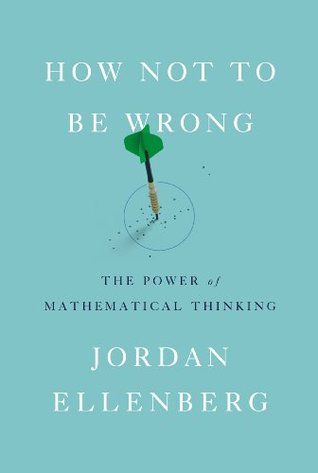More on this book
Community
Kindle Notes & Highlights
Read between
March 18 - April 18, 2020
An important rule of mathematical hygiene: when you’re field-testing a mathematical method, try computing the same thing several different ways. If you get several different answers, something’s wrong with your method.
many as died in both world wars combined.
The Law of Large Numbers will always push the Big players’ scores toward 50%, while those of the Smalls are apt to vary much more widely.
De Moivre’s insight is that the size of the typical discrepancy* is governed by the square root of the number of coins you toss.
If you want to make the error bar half as big, you need to survey four times as many people.
if you want to know how impressed to be by a good run of heads, you can ask how many square roots away from 50% it is.
If you flip N coins, the chance that you’ll end up being off by at most the square root of N from 50% heads is about 95.45%.
The way the overall proportion settles down to 50% isn’t that fate favors tails to compensate for the heads that have already landed; it’s that those first ten flips become less and less important the more flips we make.
not by balancing out what’s already happened, but by diluting what’s already happened with new data, until the past is so proportionally negligible that it can safely be forgotten.
It’s because the question of whether one war was worse than another is fundamentally unlike the question of whether one number is bigger than another.
these takeaways are truly stunning. In 2010, as the nation continued to recover from
But no. Those numbers are net job losses. We have no idea how many jobs were created and how many destroyed over the three-year period; only that the difference of those two numbers is 740,000. The net job loss is positive sometimes, and negative other times, which is why taking percentages of it is a dangerous business.
The universe is big, and if you’re sufficiently attuned to amazingly improbable occurrences, you’ll find them. Improbable things happen a lot.
The more chances you give yourself to be surprised, the higher your threshold for surprise had better be.


